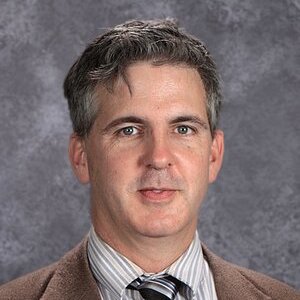One way to shed light on the term antifa is to look back to 1949, when the Anglo-Catholic writer Evelyn Waugh published his quasi-autobiographical short story “Compassion,” set in rural Yugoslavia during World War II. Depicting a well-meaning albeit hapless British liaison officer forced to work with some obnoxiously pushy Communist partisans, Waugh contrasts the down-to-earth if naive mindset of a middle-class Englishman with the narrow-minded ideology informing socialist guerilla cells. At one point, for instance, the Communists invite Major Gordon to a celebration:
The Anti-Fascist Theater Group was organizing a Liberation Concert and had politely asked him to supply words and music of English anti-fascist songs, so that all the allies would be suitably represented. Major Gordon had to explain that his country had no anti-fascist songs and no patriotic songs that anyone cared to sing. The Commissar noted this further evidence of Western decadence with grim satisfaction. For once there was no need to elaborate. The Commissar understood. It was just as he had been told years before in Moscow.
Here it should be clear that the term “anti-fascist” was not a word ordinary British (and American) soldiers used to describe themselves. It is a term of Soviet origin, and serves to mask the assumption that socialism is the only alternative to fascism. Coming as they did from a still somewhat sane, wholesome, and organic culture, the Englishmen who fought the Second World War did not memorize the propagandist lyrics to “anti-fascist songs.”
Orthodox. Faithful. Free.
Sign up to get Crisis articles delivered to your inbox daily
The genealogy of the term antifa notwithstanding, we should not go too far in conflating the contemporary phenomenon with the old Marxists of yesteryear, insists political historian Paul Gottfried in his Antifascism: The Course of a Crusade: Insofar as it works in concert with oligarchs, pushes for unlimited sexual license, and promotes the annihilation of culture as such, the modern antifascist Left is actually much worse than traditional Communism, or at least more deranged. As Gottfried notes, today’s Left “has catered to groups that have nothing in common with the native-born working class, the Left’s historic base that it now often condemns as bigoted and unenlightened,” and it “seeks to break free of national attachments that an older, traditional Left in varying degrees affirmed.”
If a fascist is someone who exhibits what Erich Fromm disingenuously condemned as “the authoritarian mind,” an anti-fascist turns out to be somebody who has a frenzied hostility toward authority per se—that is, authority such as was once unambiguously invested in parents, pastors, teachers, and so on. Insofar as the antifa movement recognizes no higher authority and no transcendent limits to its seek-and-destroy mission, it is a totalitarian movement aimed at demolishing family, church, education, and Western civilization as such. Since the fasces symbolized Rome and Rome is a touchstone in Western culture and Christianity, anyone who is single-mindedly committed to cleansing society of every “fascist” taint must level one Western institution after another, until at last everything normal human beings cherish lies in pieces.
Hence there is no hope of a negotiated peace in the culture war. In Gottfried’s words, anti-fascism is “perpetually at war with a never-defeated fascist enemy, which the instigators identify as those who resist the never-ending anti-fascist campaign. And rather than raising questions about this crazed project, universities, churches, and the mass media all rush in to participate.” Historically and everywhere, political legitimacy has always rested upon some positive aim—the common good, the Mandate of Heaven, the Kingship of Christ—but today the legitimacy of Western institutions and regimes rests finally upon one purely negative objective, that of staving off the second coming of Hitler, which is always just round the corner (i.e., the National Endowment for the Humanities does not ultimately exist to celebrate and promote art and literature but to fight the specters of racism and fascism).
As Gottfried notes, numerous Catholics opposed Nazism during the 1930s and 40s, but those who fought real Nazis back when doing so required actual courage were motivated by values radically different from those of today’s self-styled antifa crusaders. Neither fascists nor anti-fascists, “predominantly Catholic critics of German Nazism” understood the Church “as a counterforce to a dangerous neopagan age,” and saw radical nationalism as “exemplifying spiritual problems they believed would continue to plague modern Western societies after the Nazis had vanished.” In the case of many Valkyrie conspirators, Catholics like Engelbert Dollfuss, and the Jesuit Fr. Alfred Delp, opposition to the Nazis cost those in question their lives. This is a far cry from posting a “selfie” before the toppled statue of someone the rootless, historically-illiterate photographer has been brainwashed to hate.
What is perhaps most important to note is that, back in the day, the Nazis’ Catholic opponents were not driven by hate but by love. That is, unlike those now frenziedly bent upon tearing down all restraints upon individual will and appetite, such Catholics had a positive vision of the cosmos and man’s natural—and supernatural—place in it. Thanks to this fundamentally affirmative vision, they recognized that there was nothing inherently evil about either nationality or German identity. Rather, the fundamental evil to be faced back then was the depersonalized mob mentality, which makes mass man so susceptible to totalitarianism. Needless to say, that evil is still going strong today.
[Photo Credit: Shutterstock]
